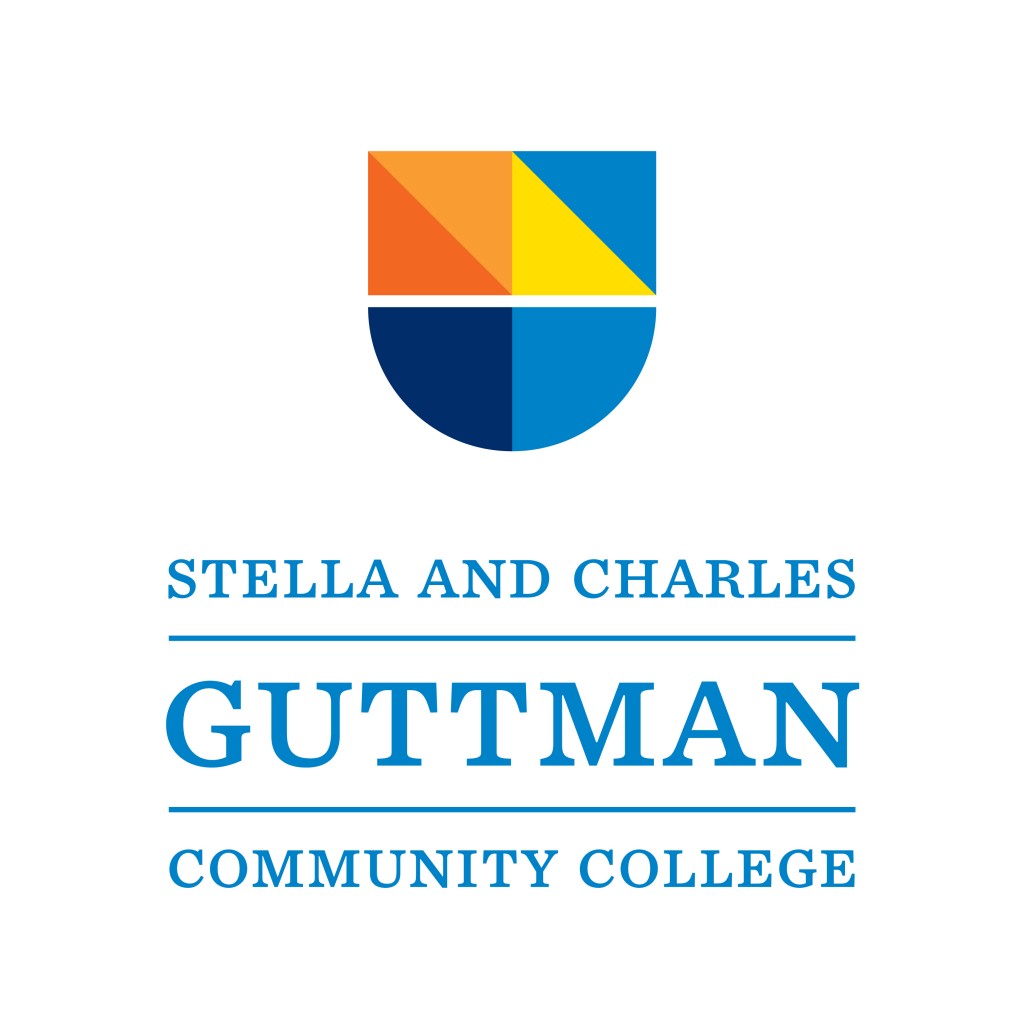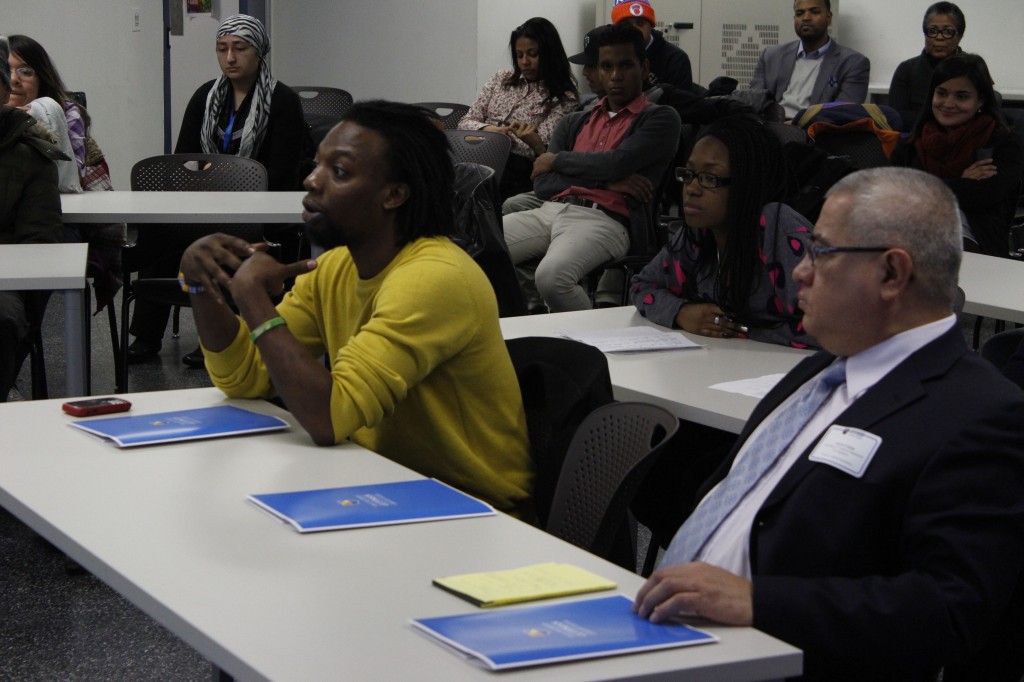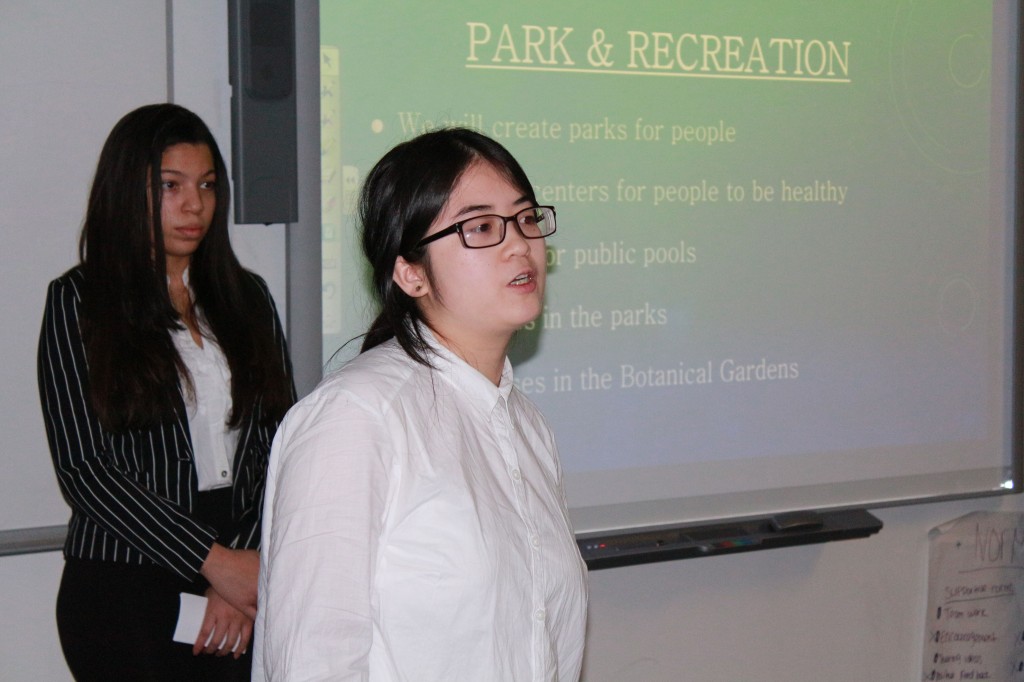

 By: Omairys Rodriguez
College Assistant, Communications & Public Relations
Guttman Community College
By: Omairys Rodriguez
College Assistant, Communications & Public Relations
Guttman Community College
Students Study Sustainability Issues for City Seminar Final Project.
During the end of the Fall I semester, first-year students in the City Seminar I course gave presentations as part of their final projects based on the theme of maintaining a sustainable New York City. Students in House I, for example, were given a scenario-based assignment to reconstruct New York’s infrastructure after a catastrophic seismic event. Students were assigned to City Planning groups to study the structure, function, governance, successes and failures, and the sustainability measures of one of eight city departments, including Agriculture, Transportation and Education and to present plans to create new, improved and sustainable departments to manage the rebuilding of New York City. Final presentations were made to a panel of faculty experts, who posed questions to each group.
House 3 students explored the differences between public opinion and data concerning New York’s sustainability. They examined topics such as waste and recycling and asthma and air pollution by researching these subjects and studying data based on surveys they conducted. Students presented their findings as part of nine panels focused on different topics. One student served as a moderator for each panel.
Over a dozen invited guests from outside the college responded to student research from their areas of expertise, including Michael Chase Johnson of Green City Academy, Mark Seaman of the Planning and Regional Development Division of the New York and New Jersey Port Authority and Sabina Pendse of the Environmental Protection Agency, who noted, “I was very impressed by the students’ research and insightful presentations. I only wish we had more time to ask questions and continue the discussions with the students. I thought the presentations were well-organized and I was also impressed by how well the students moderated the discussions.”
City Seminar is a year-long interdisciplinary course that introduces students to a variety of perspectives within the liberal arts and sciences, including education, urban policy, environmental studies, business and industry, public health, work and labor markets, immigration, and public arts and culture. During the fall semester students explore the complex issues that impact New York City. City Seminar builds critical thinking and analytical skills by challenging students to evaluate the historic and social context of different issues, survey multiple perspectives, and analyze the evidence driving key decisions. The course also provides students practical learning and community-based opportunities. Group activities facilitate broad discussion and engage students to take action to improve the city.
For more photos of the event click here.


